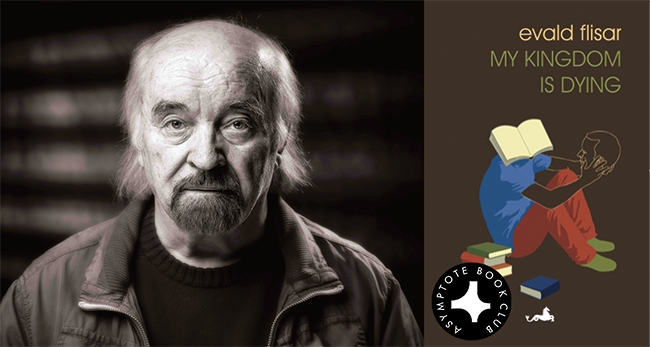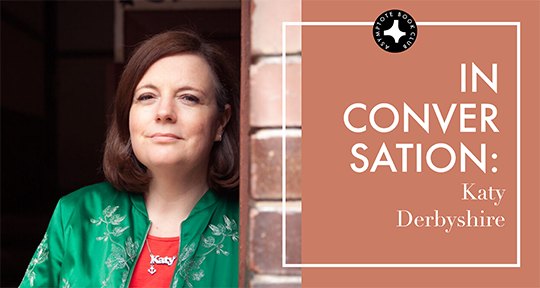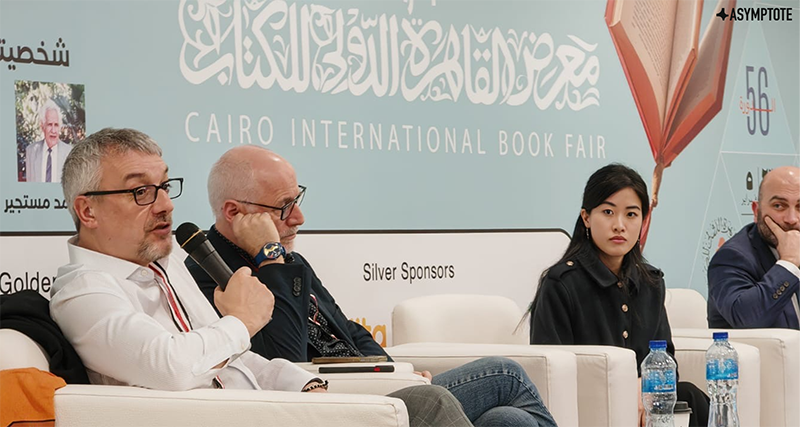Having made his mark on nearly every literary genre from playwriting to children’s books, Slovenian author Evald Flisar has plenty to say about language and its multiplicity. So it is that a life lived in (and through) letters is at the centre of the wondrous and wandering My Kingdom Is Dying, the author’s latest novel to be translated into English, and our Book Club selection for the month of March. Following an aged writer in his recollections, Flisar constructs the barrier between memory and fiction as exceptionally porous in a mind prone to hyperbole, intertextuality, and philosophical ideals of narrative, making way for an astute investigation into the confabulation at the centre of our worldly regard. Here is the self as a living archive, as un-fact-checked autobiographies and indexes—as if each writer, each storyteller is a living incarnation of literature itself.
The Asymptote Book Club aspires to bring the best in translated fiction every month to readers around the world. You can sign up to receive next month’s selection on our website for as little as USD20 per book; once you’re a member, join our Facebook group for exclusive book club discussions and receive invitations to our members-only Zoom interviews with the author or the translator of each title.
My Kingdom is Dying by Evald Flisar, translated from the Slovene by David Limon, Istros Books, 2025
At the beginning of Evald Flisar’s latest novel, My Kingdom is Dying, a hypochondriac writer has just broken both his wrists in a bizarre fall, catalysing a decay of home and body that progresses with worrying speed. While convalescing, he lists all the maladies experienced throughout his long and distinguished career—thus far, he says he has
fallen ill three times with malaria (on one of these occasions with falciparum, which almost killed me), as well as typhoid fever, Legionnaire’s disease, pneumonia and Dengue fever . . . But then other things appeared: increased stomach acid (stress, said the doctor) . . . problems with my spine and vertebrae, I often had to spend a month immobile in bed . . . and then unexplained pains . . . my body was disintegrating. . .
He acquires a carer to aid him in the healing process, and with this, the reader is gradually drawn into a world wherein the two become increasingly physically and emotionally entwined. A literary tale about storytelling wouldn’t be complete without someone taking the role of Scheherazade, and with the arrival of the incredulous but devoted carer, the writer is given a perfect audience. As he narrates his own life, he is met by an enraptured, encouraging ear that is always wanting more.
The relentlessness of his self-obsession, iterated with stimulating humour, is continually exacted through his stories, and through their twists and turns, one eventually comes to understand and appreciate the literary goals of the real-life author: to compose a gentle satire about the process of writing literary fiction, and to shine a light into the odd situations authors occasionally find themselves in. READ MORE…













